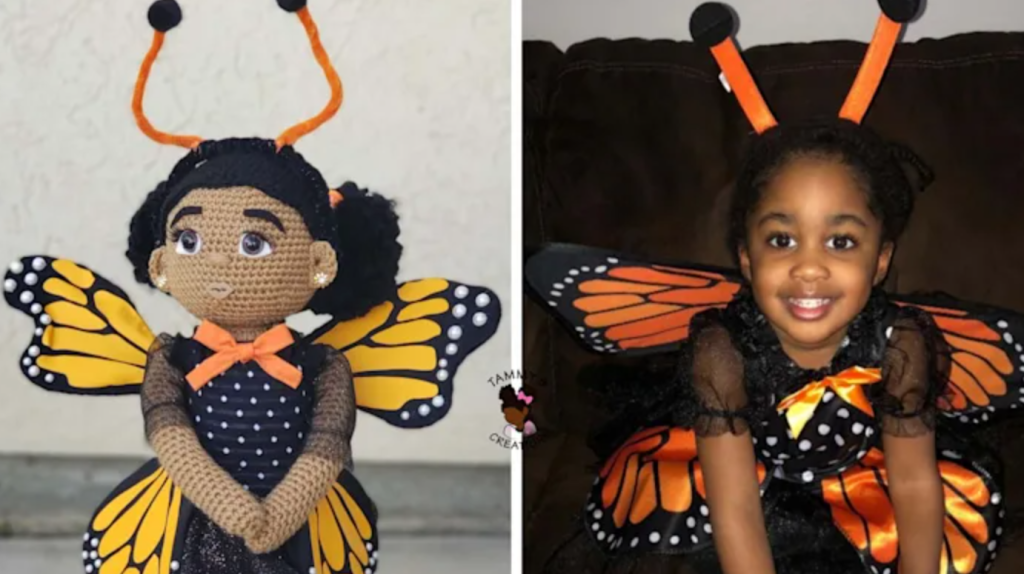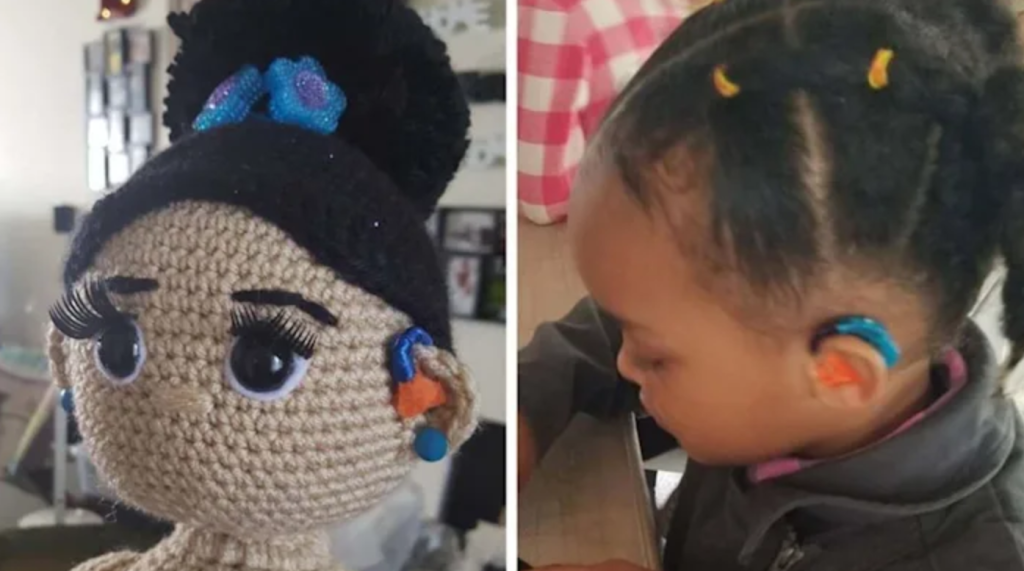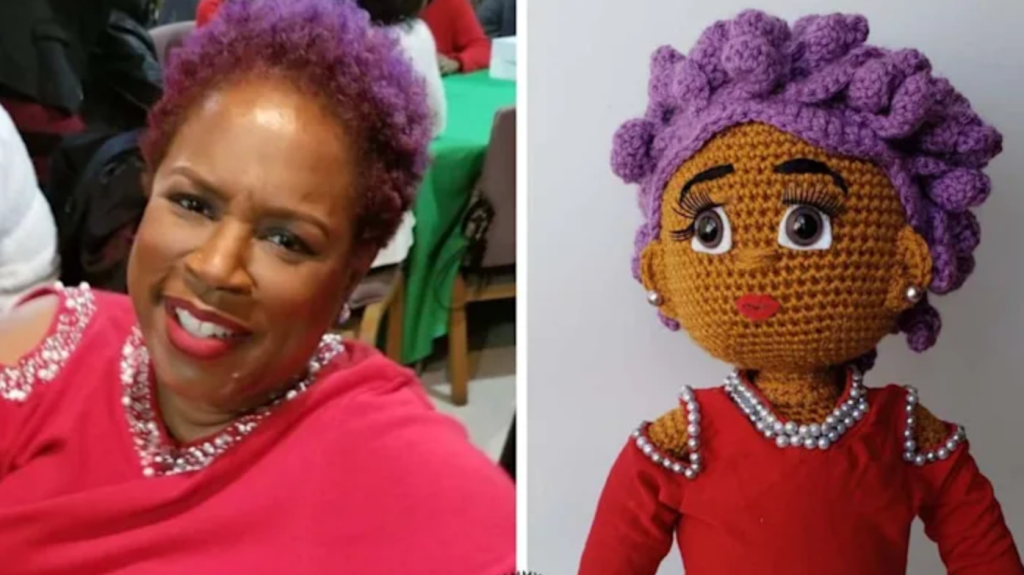Doll maker Tammy Blunt knows firsthand how important it is for children, and even adults, to see themselves portrayed in dolls.
Growing up in Trinidad in the 1980s and 1990s, Blount told Yahoo Life, she had cabbage patch dolls and white Barbies, “but I could never find one that looked like me.” She added, “It’s pretty hard to find a black doll. If you find a black doll, it’s never going to be one with African-style hair. The skin color never fits. The representation wasn’t there.”
Blount shared that she comes from a “creative” family and learned to sew and crochet at a young age from her mother and aunt. As a child, she used a child’s sewing machine to make clothes for herself, and in 2014, she ventured out to make her first crocheted doll, but she says, “I never thought it would be a long-term career.”

However, when Blount started posting photos of the dolls she made on her Instagram, she received a lot of positive reactions. “A lot of people were like, ‘I’ve never seen anything like that,'” she recalls. “It’s beautiful. “It’s wonderful.” “I wanted one myself,” she added, adding that some people messaged her saying, “Where were these when I was a kid?”‘”
Brent is a mother of four and lives in El Paso, Texas. She says the positive reaction to her work “inspired me and encouraged me to get into this market that I realized was being overlooked.” “That’s how Tammy B Creations was born. This way I can share my dolls with anyone in the world.”
Making sure her dolls come in a wide range of skin tones is important to Brent. When customers order a custom Tammy B Creations doll, they’ll find 21 different skin tones – “I’ll try to match your skin tone,” she says – -and about 10 different hair styles to choose from.

Customers can also choose “the type of clothes you want the doll to wear,” she says, “shoes, eye color, lip color,” and more. In addition to glasses, blunt can also accommodate special requests, such as hearing aids and birthmarks. “I’m very detail-oriented,” she says.
If a customer submits a photo, blunt can “recreate it for you” so that the doll matches exactly. She says, “I want my dolls to be delivered to a home with a little girl in it who doesn’t have anything that looks like her.”
She also makes custom dolls based on people who have died, which is a comfort to both children and adults who have lost loved ones. Brent says the process is “very touching.
It takes four to six weeks to make a doll, and she makes the parts of different dolls – the head, hands and feet – at the same time. She estimates she has made 300 dolls so far.

Knowing that the selection of black dolls at large retailers is still “limited” motivates her to keep making her crocheted dolls. “It’s still a little tricky to go to the store and see a black doll,” she says.
She hopes bigger stores will see that having full-skinned dolls is “much needed,” she says, “and it’s important for black people to know they’re being represented, and black dolls need to be just as important as dolls of other skin tones.”
Until then, I’m going to keep making my dolls just to get that representation, because we need it,” she added. “We need it.”
Blount shared that she has received many heartwarming videos of children excited about their custom dolls, “and that’s what keeps me going.” She believes dolls can help children “build confidence, lift their spirits and make them think, ‘Wow, I’m beautiful.'”
Brent says having a doll just like them is a “special gift. “To say, ‘Well, this doll has my skin color, it looks like me,’ that’s the word I like to hear – ‘just like me.’ “
She added: “I need people to understand that having something that makes them feel happy and proud really helps little girls and boys, and even adults can see that.”

